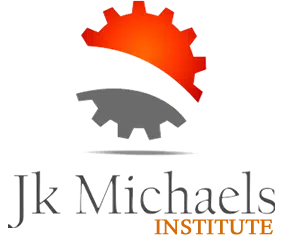Human Resource Management Courses, or HRM, is the coordination, administration, and distribution of human resources, or workers, in a way that advances the objectives of an organisation. The main goals of HRM are to invest in workers, guarantee their safety, and oversee every facet of personnel, including hiring, remuneration, and development.
Employment in human resources might focus on employee management, training, or remuneration. HRM professionals often hold a bachelor’s degree; however, some continue to earn a master’s. HRM professionals at all levels can also obtain professional certificates to expand their expertise and improve their earning potential. Through personnel management, HRM seeks to fulfil its mission and achieve its overall goals while establishing a company culture.
What human resource management (HRM) is defined as
Human resource management entails planning, organising, and overseeing its current workforce to fulfil an organisation’s mission, vision, and objectives. It covers hiring, training, remuneration, staff retention, and motivation.
HRM personnel also create and implement rules and procedures to promote employee safety. The HRM department oversees compliance with federal and state regulations that may safeguard employees’ data and guarantee their physical, mental, and emotional security. HRM keeps businesses operating smoothly and efficiently, regardless of size or industry.
Human resource management’s (HRM) goal
The human capital management (HRM) technique acknowledges people’s contribution to an organisation. Employee motivation and happiness can be raised by strategically investing in them and attending to their needs. Workers with the abilities and motivation required to accomplish the organisation’s objectives will likely be well-trained, competent, valued, and supported by their employers.
Let’s take a closer look at the motivation behind HRM:
Develop the talents of staff members.
HRM seeks to develop a highly competent workforce and increase competence and self-assurance to inspire employees to participate. A management or department in charge of human resources could offer:
Programmes for reimbursement of tuition
Workplace training
Internal mentoring programmes in an organisation
Programmes for career development that assist staff members in realising their potential
Encourage a positive working culture.
Job satisfaction and business culture are significant areas of emphasis for HRM. The workplace culture has a significant influence on employee motivation. Workplace cultures that are inclusive and collaborative can be fostered via employee engagement programmes. HRM plays a critical role in recruiting and employee retention despite culture being challenging to assess and quantify.
Safeguard workers.
Moreover, HRM safeguards workers. Professionals in human resources (HR) handle legal paperwork, rules, and policies; they also determine which ones apply to their company and devise efficient staff training and policy enforcement plans. HRM wants to be an employee’s partner orally. Human resource management (HRM) strongly emphasises employee development while shielding workers from harassment, dangerous jobs, and unjust wages.
Foundational concepts in Human Resource Management (HRM)
In the field of human resource management, tasks include:
- Hiring new personnel.
- Assessing work performance.
- Making sure that benefits and pay are equitable.
- Providing training and support for employees’ continued education.
- Safeguarding the health and safety of all workers.
These are essential pillars that support the work that HRM specialists do. HRM plays a role at every step of an employee’s tenure with a company, from creating a job ad to offering opportunities for continuing education. Developing compensation plans, recruiting tactics, teamwork, and communication are just a few of the technical and interpersonal abilities required to be a successful HRM specialist.
